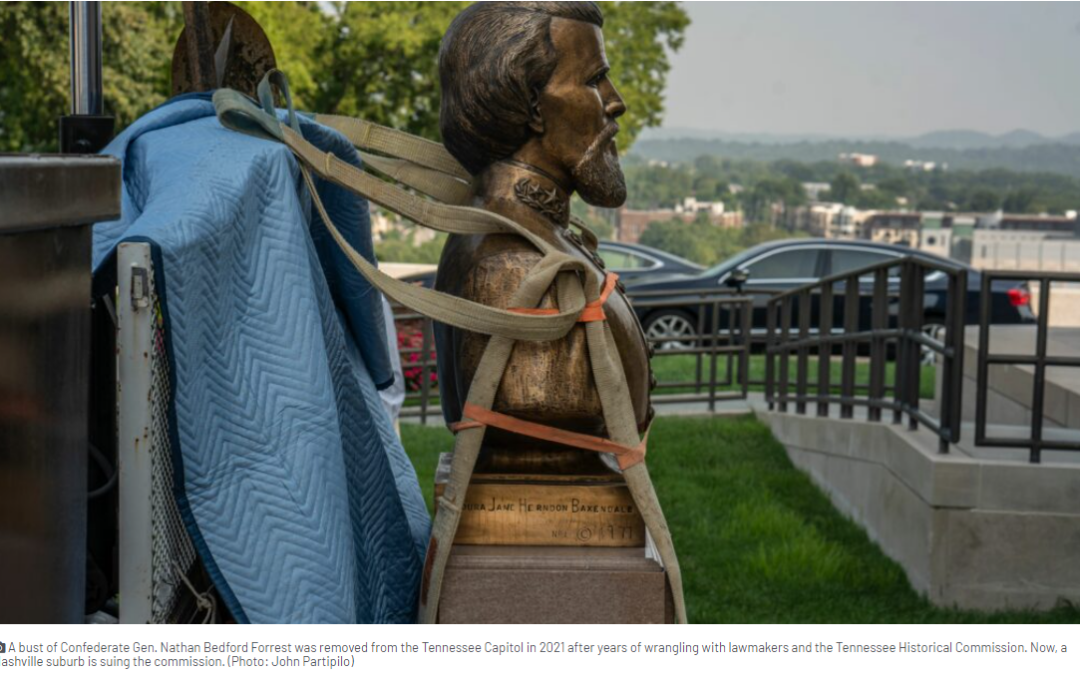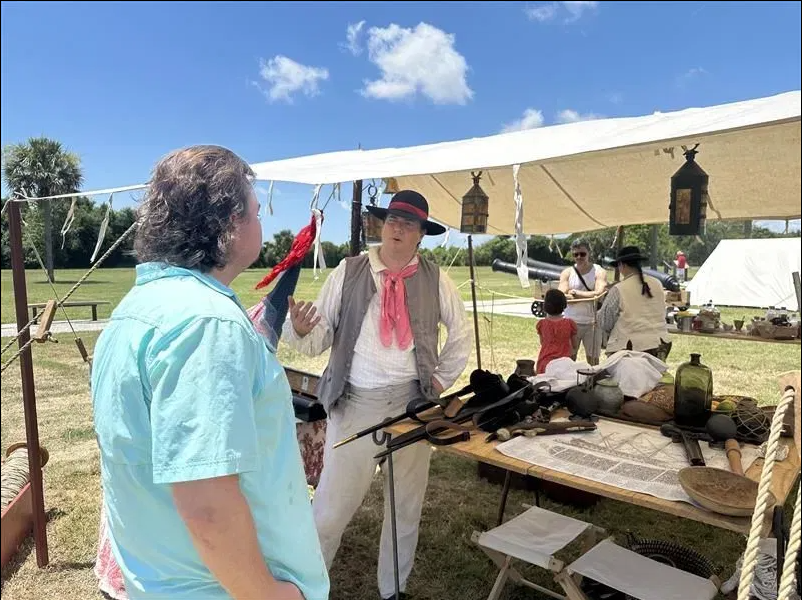TENNESSEE: Nashville Suburb Sues State Historical Commission Over Confederate-Named Streets
During the late 1950s and early 1960s — in an era marked by desegregation and white flight — a pair of real estate development firms built a residential enclave in the Nashville suburb of Forest Hills and drew inspiration from the Civil War to name its streets.
The developers named one of the entrances to the Tyne Valley Estates subdivision Robert E. Lee Drive, which connects to Confederate Drive and General Forrest Court. They named another main thoroughfare Jefferson Davis Drive. Smaller side streets are named Robert E. Lee and Jefferson Davis Courts.
The City of Forest Hills has now filed a lawsuit against the Tennessee Historical Commission asserting the agency has no authority to stop them from renaming the subdivision’s streets.
The lawsuit seeks a ruling allowing Forest Hills to rename six specific streets in Tyne Valley Estates, but the case could have broader implications for suburban communities across Tennessee seeking to rid themselves of Confederate-themed street and subdivision names.
The lawsuit claims that the state’s Heritage Protection Act does not apply to subdivisions, which are typically built on private property by private developers who construct and name roadways long before they formally are recognized as public streets.
The Heritage Protection Act requires formal approval from the 29-member historical commission before public memorials, including street names and statues, may be removed or renamed. The law was enacted in 2013 in response to a series of public controversies over removing Tennessee’s public Confederate memorials.
The law defines public memorials, in part, as “any statue, monument, memorial, bust, nameplate, plaque, artwork, flag, historic display, school, street, bridge, or building that has been erected for, named, or dedicated on public property in honor of any historic conflict, historic entity, historic event, historic figure, or historic organization.”
Forest Hills’ officials have argued that the law does not apply to subdivision streets mapped out, constructed and named by developers before they become public property. Residents have complained, they said, and urged the city to rename the streets.
“We have subdivision streets, the names of which were selected by developers in the 1950’s and early 1960s,” Marshall Albritton, the city’s attorney, told the historic commission in September, after the city brought a petition that asked the commission to find it has no jurisdiction over the subdivision’s street names.
“Of course people back then — the developers back then — had certain ideas about whom they would like to honor so they honored the individuals who are mentioned in our petition,” he said. “But that had nothing whatsoever to do with the city. This land was privately owned. The city has no input into the naming of that subdivision.”
Albritton told the commissioners that Forest Hills, like many cities, has authority over road specifications and inspections when subdivisions are being built, but no say in how the roads or subdivisions are named.
“We have no standards whatsoever about the naming of those streets,” he said. “It appears that that’s pretty common. You might think for a minute that maybe cities should have some standards, but I suspect the reason they don’t is developers are usually sufficiently motivated to pick attractive names of streets, otherwise people might not want to live on those streets.”
A majority of the commission’s members rejected Albritton’s arguments in a decision issued in November, concluding that state law did not explicitly require that a memorial, including a street name, was “named or dedicated by a public entity” and that it was “sufficient” that the roads are now public property.
On a separate track to its lawsuit, the city has also petitioned the historic commission for permission to change the street names. The board will consider that petition at its February meeting.
The city filed suit in Davidson County Chancery Court on December 20 seeking a judicial ruling that it does not need the commission’s permission. No hearing has yet been set in the case.
City of Forest Hills Lawsuit by Anita Wadhwani on Scribd



